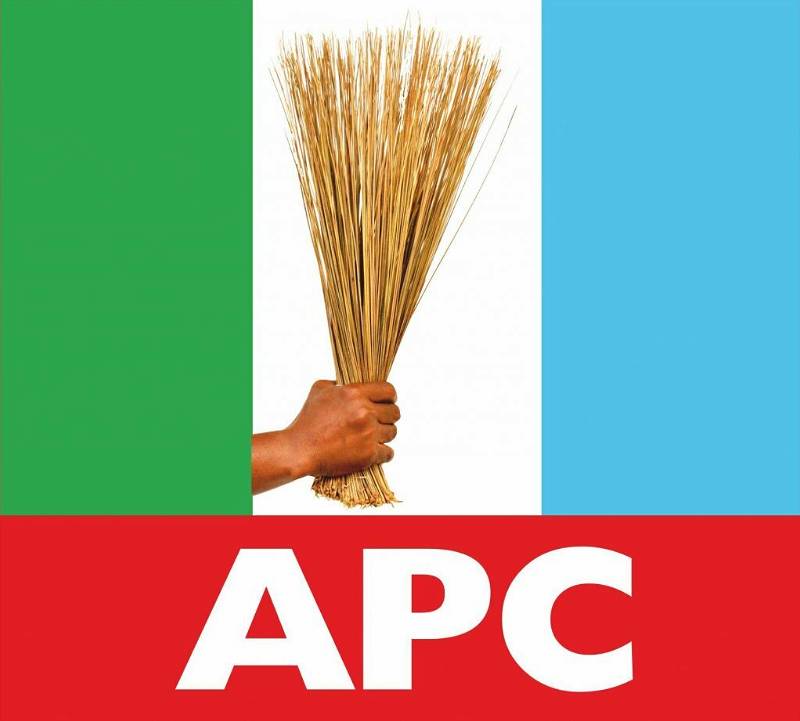…..Literary landmarks in a stifling summer
Events on Nigeria’s sociopolitical scene in recent weeks have tended to obfuscate developments on the literary and cultural orbit. A new government under Bola Ahmed Tinubu, a former governor of Lagos State and erstwhile national leader of the All Progressives Congress, (APC), was inaugurated Monday May 29, 2023. It replaced the better forgotten grossly un-impactful, dour and duplicitous regime of Muhammadu Buhari which violated our collective national ecology for eight dreary years. Despite the several pledges, vows and falsehoods the past administration fed the electorate ahead of its power grab in 2015, the Buhari government holds the medal of the most disastrous in our political history. Official pilferage rates the regime as the most corrupt ever, throwing up scores of public servant billionaires. This was just as insecurity festered across the land spawning a novel sprouting of internally displaced persons.
The successor government continues to make false starts as it attempts to grapple with the enormity of rot and liabilities inherited from its predecessor, of the same political persuasion. Now into its eighth week in office, the Tinubu administration removed fuel subsidy on inauguration day Monday May 29, 2023, without a template to assuage the multifaceted effects on the citizenry. The government is flailing, flipping and flopping about how best to cushion the pangs of pain on Nigerians, perpetuating the disingenuous sadaka model pioneered by the Buhari brigade. It proposed to handout N8000 to the poorest households in the land to mitigate the hunger and anger of Nigerians. Amidst popular condemnation of the plan, the Tinubu government has recanted and promptly floated an “Infrastructure Support Fund.” The content and format of this proposal is yet to be articulated.
Read Also: Towards a democracy-sensitive, people-oriented judiciary, By Tunde Olusunle
As with the fuel price increase, the federal administration has also hiked fees payable in federal government-owned universities record high percentages. No mention has been made about fees payable henceforth in federal polytechnics and colleges of education. We can be sure, however, that whatever is good for the goose will be applicable to the gander. The foreign exchange market has also been deregulated with the naira floating and falling as pitched against foreign currencies. Air travellers and airport users will equally be paying more tolls even as incomes and earnings have been flattened in the face of soaring inflation. You conscientiously wonder if our current caretakers actually had a policy document given the forths and backs which has typified their performance evaluation report.
Stakeholders in the literary and cultural sector rarely celebrate themselves. They are like academics in many ways who study, teach and critique the works of others, and also like journalists who interrogate their subjects so as to write and report about them. Very notable bustle and activity has characterised the Nigerian literary and cultural scene in recent weeks and months, most of which received scant mention, because they are not hard or topical news. The country continues to live true to type as the undisputable powerhouse of African literature. It’s been a season of commemorations, birthdays, writers’ residences and much more.
Ten days before the assumption of office of the new political epoch, writers and scholars commemorated the 10th anniversary of the transition of Chinua Achebe, the iconic literary trailblazer fondly adulated as Africa’s “master storyteller.” His first novel which is celebrated as his magnum opus, Things Fall Apart published in 1958, remains the most widely read, studied, translated and commercially successful book by an African. Themed “The Immortality of Creativity,” the three-day commemorative event was held at the Mamman Vatsa Writers Village, Abuja under the auspices of the Association of Nigerian Authors, (ANA). Achebe pioneered the association in 1981, at an event in the university town of Nsukka attended by the cream of Nigerian writers, with the Kenyan literary legend Ngugi wa Thiong’o in attendance. Gacheche Wauringi a fellow Kenyan author accompanied Ngugi to the event. Femi Osofisan, Emeritus Professor and recipient of numerous global awards, graced the event.
Instructively, this season marks the 20th anniversary of the berthing of the first work by Nigeria’s prominent global ambassador for literary creativity, Chimamanda Ngozi Adichie. The multiple award-winning and recognition-earning novelist and essayist, Chimamanda’s premiere publication is titled Purple Hibiscus. She has since written other novels, short stories and extensive essays which have been published as books in their own right. Chimamanda has headlined conferences, workshops, seminars and symposia across the globe where she continues to hoist aloft the banner of her homeland. She remains a major inspiration both for young writers and indeed women across the world. A discussion with the theme “Extremists in Post-independence Nigeria: A Sociological Interpretation of the character of “Eugene” (Papa) in Purple Hibiscus, is being organised by the Nigerian Literary Society, (NLS). The programme is slated for Saturday July 29, 2023, in Port Harcourt.
Read Also: An “IFTAR” experience with Atiku Abubakar, By Tunde Olusunle
Committed to the resuscitation and sustenance of the culture of devout attention to literature and creativity long atrophied by the onset of information technology, ANA, presently under the leadership of Camillus Uka, has reinvented the Mbari Series. The series was initiated by the venerated German scholar, Ulli Beier in 1961 and involved young writers at the time like Achebe and Wole Soyinka. Achebe is reported to have suggested the name Mbari which is an Igbo concept affiliated to creativity. Christopher Okigbo, John Pepper Bekederemo-Clark, Bruce Onobrakpeya, Demas Nwoko, Mabel Segun, Uche Okeke and South African writers Ezekiel Mphahlele and Arthur Nortje were some of the earliest members of the group.
Razinat Mohammed and Emeka Aniagolu, both professors and writers took centrestage at the Saturday June 24, 2023 edition of the event, headlined “A Nation in Dire Need of Innovation: Literature as the Answer.” The July 2023 version of the Mbari converge was titled “Effective Use of Language in Communication” and hosted by Udenta Udenta, respected cultural scholar and professor. Emmanuel Dandaura, a professor at the Nasarawa State University Keffi, (NSUK), was moderator at the programme. Francis Egbokhare, revered professor in linguistics and sociolinguistics, and Joy Eyisi, respected professor of English language and applied linguistics, were the discussants at the very convivial event.
Days before the July 22, 2023 Mbari in Abuja, Wole Soyinka, Africa’s first and Nigeria’s sole Nobel Laureate for Literature thus far, turned 89 on July 13, 2023. There was no ceremony commemorating the landmark per se except for the typical deluge of felicitous messages. Providus Bank one of Nigeria’s newest financial institutions, however, hosted the octogenarian Soyinka and another cultural colossus, the Nonagenarian Bruce Onobrakpeya on Sunday July 16, 2023. The event was at a reading session marking the publication of Soyinka’s latest poetry volume titled: Selected Poems (1965 -2022): A Retrospective. By the very title of the publication, it is an aggregation of his poetry within the last six decades.
July 19, 2023, the Nigerian and global literary commune lost one of its most popular writers and scholars, Kole Omotoso in Johannesburg, South Africa, at 80. A formidable novelist, dramatist, intellectual, theorist, newspaper columnist and more, Omotoso had nearly two dozen novels, plays and critical works to his name. He lived the last 35 years of his life outside Nigeria, predominantly in South Africa where he was a notable face on billboards and television advertisements for Vodacom communications which earned him the nickname of Yebo Gogo man. He equally featured in a 1997 South African television drama Mandela and de Klerk where he was cast as “Govan Mbeki,” Mandela’s fellow prisoner on Robben Island.
Onetime President of ANA and incumbent Secretary-General of the Pan African Writers Association, (PAWA), Wale Okediran, has continued to provide infrastructure for writers to reflect and write. His Ebedi Residency facility in Iseyin, Oyo State has been regular host of Nigerian and African writers. Testimonies of the inspirational ambience of the resort have always trailed the participation of various alumnae. The Ebedi Residency idea has inspired a similar project across the road from Iseyin, in Ilorin, the capital of Kwara State. This time last year, Dipo Usman Akanbi pioneered the Imodoye Writers Residency.
Akanbi who holds a doctorate in agricultural science and teaches at the University of Ilorin drew inspiration from the Iseyin prototype and the Hilltop Creative Arts Centre in Minna, Niger State. It offers three-week residences to eligible writers. Foremost literary giants like Femi Osofisan and Olu Obafemi have toured the facilities in place at the residency. The Library of Africa and the African Diaspora, (LOTAD) based in Accra the Ghanaian capital, is presently inviting interested writers to its 2023 residency programme. Successful applicants will be availed a one month, full boarding stay in any month between August and December 2023. LOTAD will also be responsible for the travel expenses of applicants who make the cut.
Read Also: Atiku and the PDP rebuild project, By Tunde Olusunle
With the all-important Annual International Convention of ANA scheduled for the last quarter of the year, so much more will still take place in the commune of Nigerian writers. It is expected that the association continues to grow and to adopt global best practices in its operations. Writers have spoken of the need for participants at its conferences to be provided with name tags. Writers in the academia record their participation in ANA conventions in their curriculum vitae. ANA will do well beginning from the 2023 programme therefore, to produce, endorse and distribute to participants Certificates of Attendance or Participation as the case may be. These are some of the innovations expected at the next “pilgrimage” of the global membership of ANA to the Mamman Vatsa Writers Village, Mpape, Abuja.




